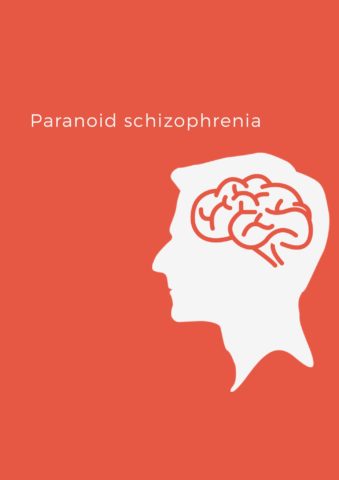Living with Paranoid schizophrenia and treatments
Paranoid schizophrenia is the justification of a belief that is created through extensive thinking of fear.
These unwanted thoughts make it difficult to differentiate realities to imaginative ideas, making it easy to form conclusions from facts.
Paranoid schizophrenia is a severe mental condition characterized by a change in personality whereby the Mind loses contact with reality.
Table of Contents
What are the risk factors of Paranoid schizophrenia
What is the likelihood of getting the disease?
You can develop Paranoid schizophrenia at any stage, but the factors below contribute to the likelihood of developing It.
- Psychological
- Environmental
- Genetic.
Psychological factors such as Severe psychological trauma, such as a violent attack, Racism, accident, stress, childhood trauma, death of a loved one, and disabling condition, can have a long-lasting effect on our mental health.
Cultural beliefs also influence our behavior and how we think and socialize.
Living With Paranoid Schizophrenia
- Environmental Factors:
The environmental factors contributing to paranoid schizophrenia are characterized into two categories;
The Social Environmental factors and
The physical environmental factors.
Example of social, environmental factors are:-
- Lack of Social support
- Poverty and homelessness
- Family Problems
- Relationship difficulties
Example of physical environmental factors are:
- Substance abuse
- Sleep deprivation
- Risk-taking,
- Genetic Factors:
Many mental health problems tend to run in the family.
Scientists believe abnormality in genes is linked to mental illness.
If you have a family member with a mental illness, you are more likely to develop one.
Symptoms of Paranoid schizophrenia:
Individuals who have Paranoid schizophrenia will have symptoms according to their environment and circumstance.
For example, an individual with paranoid schizophrenia in Africa might believe they are being attacked spiritually,
Whereby people with this illness in Europe might think they’re being spied on by the government.
- Suicidal thoughts
- Delusion
- Anti Social
- Paranoia
- Feelings of guilt
- Anxious
Treatments of Paranoid schizophrenia:
Antipsychotic medication is mostly prescribed to reduce the symptoms. It could be in any form, pills, liquid, etc.
Counseling: Once the symptoms are reduced, counseling known as Cognitive behavior therapy will help us understand how to test whether you are having delusions and how to ignore it
Disclaimer: Any action you take upon the information presented in this article is at your own risk. This article is strictly for informational purposes. The author is not a medical practitioner and as such you should not substitute the information here for professional advice.











